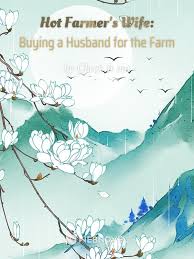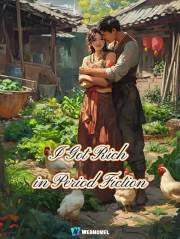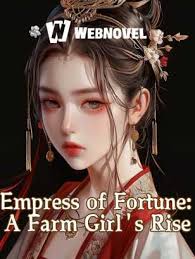The Story in 3 Sentences
A modern woman, Lin Xiaoyue, wakes up transmigrated into the body of a mute peasant girl whose father has just died, leaving her destitute and vulnerable in a harsh ancient world .
She boldly decides to buy a husband for protection and labor, only to discover at the slave market the very military captain she admired in her past life, setting her on an unexpected path of survival, business, and rekindled affection .
From a broken-down hut, she builds a thriving farm and enterprise, navigating family drama and village politics with modern ingenuity, ultimately finding prosperity, love, and a deep sense of belonging in her new, zombie-free life .
Why It Stands Out
1. The Ultimate Transmigration Power Move: Buying Your Own Husband
Forget waiting for a prince; our heroine goes to the market and purchases her own leading man. This audacious, pragmatic start flips the script on traditional romance and xianxia tropes, making her agency the driving force of the entire narrative. Her choice isn’t about love at first sight but about securing a future, which makes the eventual romance feel earned and deeply satisfying.
2. Farming as a Full-Contact Sport (and Business Empire)
This isn’t just about planting seeds. It’s a gritty, detailed chronicle of building an empire from literal dirt. The novel dives into logistics, hiring workers like Zhao Kang and Zhao Qiang, managing supply chains for bricks, negotiating with ox-cart drivers, and even running a cold cake stall . It turns agricultural development into a thrilling, high-stakes drama where every copper coin counts.
3. Found Family in the Fields
The heart of the story beats strongest in its community. It’s not just about the central couple. It’s about the network of neighbors, employees, and allies—like the ever-present Aunt Wang and her daughter Wang Erya—who become a chosen family . Their interactions, support, and shared struggles transform the farm from a plot of land into a vibrant, beating heart of resilience and mutual care.
Characters That Leave a Mark
There’s Zhao Kang – one of the first reliable workers Lin Xiaoyue hires, often seen alongside his brother Zhao Qiang, hauling bricks and managing the physical labor that turns her ambitious construction projects from dream to reality .
You’ll meet Aunt Wang, who is more than just a neighbor; she’s a trusted confidante and early business partner, so dependable that Lin Xiaoyue even considers her for the role of store manager, valuing her quick work and honest nature above all .
And Wang Erya? They’re the one who is Aunt Wang’s daughter, frequently appearing by her mother’s side, forming part of the close-knit village community that rallies around Lin Xiaoyue, sharing in both the burdens and the triumphs of her burgeoning farm life .
The Flaws Fans Debate
The pacing can feel slow, with the central romance taking a significant backseat to the day-to-day operations of farming and business, which might frustrate readers seeking a faster-burning love story.
Some find the initial setup and the sheer volume of “slice-of-life” domestic and economic details, like math lessons or cold cake recipes, to be a bit too mundane or repetitive before the larger plot truly kicks in.
The story’s focus on the protagonist’s internal journey and external hustle sometimes leaves supporting characters feeling more like functional roles (the helpful neighbor, the loyal worker) than fully fleshed-out individuals with their own complex arcs.
Must-Experience Arcs
Ch. 1–50: The Broken Hut Gambit – Lin Xiaoyue adapts to her new body and world, makes the radical decision to buy a husband, and discovers Li Xiao, setting the foundation for her survival and their unique partnership amidst immediate family hostility and poverty.
Ch. 200–400: The Brick and Mortar Empire – The farm transforms from a subsistence plot to a commercial powerhouse. Lin Xiaoyue hires Zhao Kang and Zhao Qiang, negotiates large-scale construction, opens her cold cake business, and navigates complex village economics, turning Aunt Wang into a key managerial ally.
Ch. 600–772: Victory and Belonging – The culmination of all her struggles. Lin Xiaoyue secures her family’s legacy, solidifies her business empire, and finds deep, lasting peace and love with Li Xiao, celebrating a hard-won victory that resonates far beyond mere material success, marking a true homecoming .
Killer Quotes
“Ah, she just loved ancient times! There was no war, and no famine. She also had a family and a lover! She was happy to live on like this!”
“Mother told you to eat, didn’t you hear?”
“No problem, she’ll just buy a man!”
Cultural Impact
The novel has carved out a solid niche, ranking impressively high among thousands of stories on its platform, indicating a large and dedicated readership .
Fans frequently cite its unique blend of transmigration, farming, and slow-burn romance as a refreshing and addictive formula within the genre, sparking discussions and recommendations across reader communities .
The character of Lin Xiaoyue, with her pragmatic “buy a husband” approach and relentless entrepreneurial spirit, has become a meme-worthy icon for female agency and unconventional problem-solving in historical settings.
Final Verdict
Start Here If You Want:
A heroine who takes radical, practical control of her destiny from page one.
A satisfying, detailed saga of building something from nothing, brick by brick and coin by coin.
A warm, comforting story about finding home, family, and love in the most unexpected, hard-won places.
Study If You Love:
The intricate socio-economic dynamics of rural life in historical transmigration settings.
The subversion of traditional gender and power roles through the lens of commerce and necessity.
The literary craft of turning mundane, everyday struggles into compelling, high-stakes narrative drama.
Avoid If You Prefer:
Fast-paced action or immediate, intense romantic developments.
Stories where the supporting cast has deep, independent storylines that rival the protagonist’s.
Plots that avoid detailed descriptions of business logistics, farming techniques, or domestic management.





